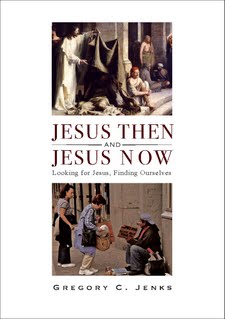Jesus Then and Jesus Now: Looking for Jesus, Finding Ourselves

This book is written from an intentionally progressive Christian perspective. It draws together multiple strands from the author’s personal and professional life: critical biblical scholarship, field archaeology, parish ministry, seminary teaching, and personal religious practice.
In this book you will find a profile of what Jesus may have been like within the context of Second Temple Judaism. This is set alongside selected aspects of the Jesus tradition as preserved in the earliest Christian writings. Neither is ascribed primacy over the other, but each casts light on the other and both inform the final part of the book that traces some of the ways in which Jesus communities now might shape their collective and individual lives.
The book begins with recent research into the diverse expressions of Jewish identity and practice in the early Roman period. These chapters focus on three key issues: the villages of Galilee as the primary setting for the activity of Jesus, the politics of the Herodian succession, and the significance of continued Jewish religious aspirations for divine intervention.
This is followed by a careful consideration of the Jesus tradition in the Gospels. Four issues are considered in turn: Jesus and the kingdom of God; Jesus and the afterlife; friends and opponents of Jesus; and his death by public execution on a cross. The interplay of these four themes, together with the contextual dynamics of the previous section, generates a composite image that blends the various glimpses of Jesus into a more realistic impression.
The third section explores some of the more controversial aspects of Christianity in the contemporary world. How do we celebrate the humanity of Jesus alongside the traditional focus on the divinity of Jesus, this book celebrates the humanity of Jesus. What is the significance of resurrection in a culture where individual survival beyond physical death is becoming increasingly meaningless? What challenges and opportunities do the multi-faith realities of our human community offer for the future of the spiritual tradition that Jesus began?
The book finishes with some reflections on the individual and public implications of Christian discipleship today. This is not a template for a ‘new Reformation’, but a modest statement of how at least one progressive Christian seeks to fashion a life that is ‘holy’ and ‘true’.
